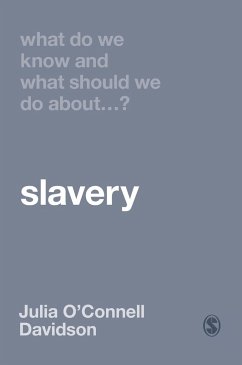Slavery is a live issue today, but the people who talk about it as such are not all of a piece. Some insist the world is now plagued by the contemporary equivalent of transatlantic slavery, and call on us to combat modern slavery . Others hold that the on-going devaluation and destruction of black life continues the logic of transatlantic slavery. They urge us to address the afterlives of racial chattel slavery. These two groupings provide different answers to the questions, what do we know and what should we do about slavery? This book reviews what is known about the issues at the heart of each perspective, and argues that the concept of afterlives is more helpful than that of modern slavery to those seeking to challenge injustice, violence, inequality and oppression in the twenty-first century.
In this scintillating little book, O Connell Davidson sketches out the relationship between slavery, racism and modernity. In so doing, she picks apart facile solutions to modern slavery offered by philanthropists, police departments and NGOs, and instead demands we think more seriously about the structure of global capitalism and the afterlives of transatlantic slavery and colonialism. This brilliant book clarifies the term modern slavery , clearing some of the ground on our path to freedom.
Dr Luke De Noronha
Dr Luke De Noronha

